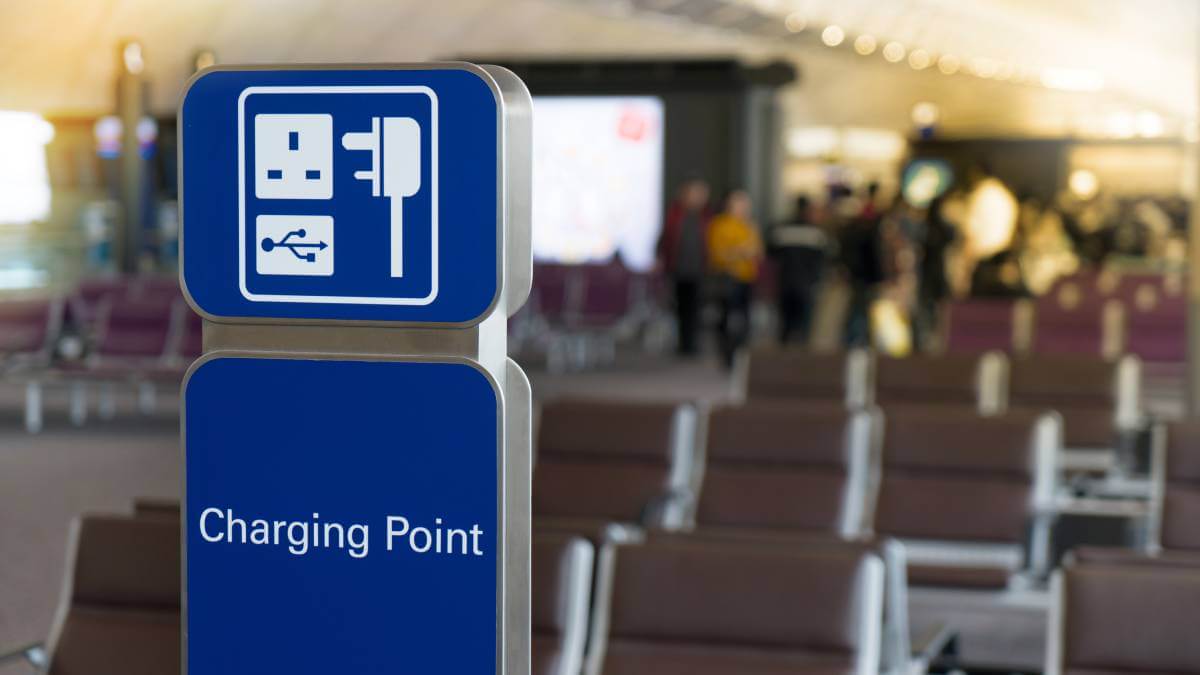Add using those convenient airport USB charging stations to your list of things never to do on holiday.
No less than the US FBI has issued a warning against the ports, with a caution that they may be used to access your data or introduce malware or spyware onto your phone.
In a Twitter post the FBI stated: “Avoid using free charging stations in airports, hotels or shopping centres. Bad actors have figured out ways to use public USB ports to introduce malware and monitoring software onto devices. Carry your own charger and USB cord and use an electrical outlet instead.”
For your information in this instance, a bad actor is someone who maliciously attacks and infiltrates your systems.
Popular plans right now
Dirty toothbrush
“Plugging into a public USB port is kind of like finding a toothbrush on the side of the road and deciding to stick it in your mouth. You have no idea where that thing has been,” Caleb Barlow, of X-Force Threat Intelligence at IBM Security, told Forbes.
“And remember that that USB port can pass data.”
Well, there’s an image I don’t want to dwell on.
According to Livewire, attackers can pass malware to a connected device (your phone) by installing modified USB sockets into an airport’s charging station.
The malicious code in the USB sockets can then transmit data from your phone to the attacker’s remote servers, even after your smartphone is disconnected from the socket.
Livewire’s recommendation is to use a USB data blocker or power-only USB cable so that the only thing that passes between the airport charging station and your phone is power.
Data blockers ensure the USB cable only charges the device.
If you only need one cable for multiple devices, a power only cable may be the answer. As it says, it only powers your device and does not allow data transfer.
As many devices are sold only with a USB adapter, you may have to buy a main adapter, available at most electronic stores and of course the manufacturer.
It’s not just airports. The authorities say not to use any public USB ports, including hotel and hospitality outlets.
Spyware
There are a few signs to look for if you suspect your phone has been affected. The two obvious ones are losing battery life quickly and using up data quickly. Spyware can slow down operations on your phone.
Livewire recommends keeping your files and data backed up using services such as iCloud and keeping your phone up to date.
It’s also a good idea to avoid online shopping or banking on public wifi.
New Zealand’s cybersecurity agency, CERT, also recommends being careful about using free public wifi.
“These networks are untrusted, meaning that it’s possible that others could see what you’re doing when you use them,” it advised.
Does cybersecurity worry you while you are travelling? What do you do to protect yourself? Why not share your tips in the comments section below?
Also read: The surprising amount of information airlines keep about you


What’s the world coming to. ? When it gets to the stage when you feel the need to check your bank balances regularly since hackers have found a way to drain your bank account.
And…..the banks & supposedly high tech police investigation departments have NO F#@king clue where your money went & how they did it.
What’s the world coming to. ? When it gets to the stage when you feel the need to check your bank balances regularly since hackers have found a way to drain your bank account.
And…..the banks & supposedly high tech police investigation departments have NO clue where your money went & how they did it.